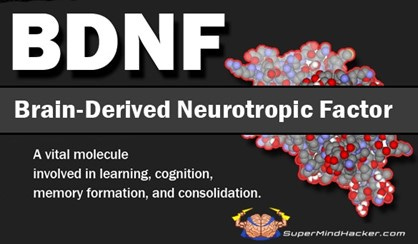As a Functional Medicine doctor, I always go back to how the body was designed, and for what scenarios. In the case of humans, we were never designed to eat three meals a day and snacks, with food always readily available.
On the contrary, we were designed to be able to eat an amazing variety of food. We are omnivores, able to eat fruit, vegetables, meat, fish, nuts, seeds, roots, and grains. Not to mention our ability to take natural foods and either to soak, ferment, or process in many ways to make that item edible.
However, our bodies run optimally when our diet is whole unprocessed natural foods of any type, with clean fresh water, lots of sunshine with periods of fasting in between, and plenty of sleep in pitch darkness.
Nowhere on Earth is there always an endless food supply for all seasons. Even the areas with the greatest food abundance like the tropics have seasons where food is scarce. That turns out to be a good thing, and we shall see why as we take a deep dive into the science of Fasting.
WHAT IS FASTING?
Fasting is defined as any period during which you are not eating anything. That being said, you must drink water during the fasting period in order to maintain adequate hydration. There is no doubt that your body needs water to run optimally.
You don’t have to drink plain water, you can infuse lemon or lime juice into it, or apple cider vinegar to both make it more palatable and for the additional health benefits that they would confer to the water. The calories added by doing any of these methods is negligible and will not interfere with weight loss.
WHAT ARE THE DIFFERENT TYPES OF FASTING?
There are several types of fasting that people practice for health benefits. Technically, these are all forms of intermittent fasting, but not as the term is currently used. Here are some of the most common ones, but keep in mind that there are scores of variations on these fasting methods cited below:
Alternate Day Fasting: As it implies, you eat normally on the first day and either very lightly on the second day or do a complete fast. Very light usually is less than 500 calories.
Keep in mind that if you are doing this for weight loss, then the better you can control your diet on normal days the better.Time Restricted Eating: As it sounds, you restrict your eating to a specific window of time, and fast for the remainder of the day. The eating periods vary between eight and twelve hours.
Periodic Fasting: This type involves not eating for a set prolonged period each month. Typically, this would be anywhere from 2 to 7 days. Most people use two or three days a month. In my humble opinion, you must be really hard core to not eat for days at a time. However, this does multiply the health benefits when not done to excess.
Personally, I never had the will power to do periodic fasting, however, to each his own.Religious or Spiritual Fasting: This is done for religious reasons such as Ramadan in Islam, Lent for Christians and Yom Kippur in Judaism.
One Meal a Day Diet: As the name implies, you choose one meal and that is your only meal that day, pretty simple and quite popular.
5:2 Diet: In this plan, you eat normally for five days and either drastically restrict your calories on two days or completely fast and eat normally for the other five days.
Eat-Stop-Eat Diet: This involves eating normally one day and choosing a schedule of fasting for one, two or three days a week on the others.
Warrior Diet: In this diet you eat small amounts of raw fruits and vegetables during the day and a large meal at night for a four-hour window.
Dry Fasting: With this type of fast you abstain from eating both food and water for a designated period, usually for only a day.
NOTE: I think this one is both stupid and potentially dangerous due to dehydration risks. I am just mentioning it for completeness, not drinking water for more than 24 hours will cause dehydration, something that is always bad for you.
Kinky Fact/Nerd Food: How can bears fast for months at a time while they hibernate without drinking any water? Well, as it turns out, fat does not combine with water, but does trap water within its cells. As the bears fast its fat stores are consumed in a process known as lipolysis. (Lipo means fat and lysis means breaking something apart, hence lipolysis means breaking fat apart). This continued slow lipolysis releases enough water to hydrate the bear until spring.
10. Intermittent Fasting: This is by far the most popular of all methods of fasting. The reason is that it is the easiest and the least painful method that produces great results. There are several different variants but for the most part involves an 18-hour fast with a six-hour meal period.
How I do it in my practice is to advise patients to wake up and skip eating anything until lunch which typically is at around noon. They can have black coffee, tea of any type including mushroom teas, but you cannot have anything like sugar or milk in it, this will provide calories and break the fast.
Eat a light lunch, as far as carbohydrates, and then at around 6 pm. eat dinner, also low on carbohydrates. From the end of dinner at 6 pm to noon the next day is roughly an 18-hour fast! During that fast, you do not eat a morsel of food, however you should drink your normal amounts of water, this has two purposes, hydration and helps your hunger, which often is mistaken as thirst.
Kinky Fact/Nerd Food: The term breakfast we use commonly to define the first meal of the day typically early in the morning after rising. Breakfast is a combination of break and fast, breaking the overnight fast. Until the industrial revolution, breakfast typically was a piece of bread and cheese sometimes with some ale to wash it down.
After the industrial revolution it became more important to have a heavier meal to provide workers with adequate energy to literally work the machines that powered it. In the present day, it has morphed into a rather large meal, many times including eggs, toast, bacon, home fries, juice, and coffee!
Yet most of us are not exerting the huge amounts of energy that such a meal provides, hence it contributes to the multiple causes of the obesity epidemic.
WHY IS INTERMITTENT FASTING SO GOOD FOR YOUR HEALTH?
Right off the bat, let me put some myths about fasting to rest. Most patients confuse fasting with starvation. They incorrectly assume that without eating food your body is suffering and starving. Nothing could be further from the truth.
When you fast, the first thing your body does is look for energy from sugar or glucose. The body gets this glucose at first from your blood, and when that is exhausted it will use reserves of glucose, which is stored as glycogen.
Glycogen is like starch, it is a very compact molecule comprised of pleated layers of glucose and easier for your body to store as such, in your liver and muscles and to a lesser degree in your brain.
As a Functional Medicine doctor, I always ask why store glycogen in these places. The reason for liver glycogen stores is to allow the liver to release glucose into the blood when blood glucose levels are low to provide energy to the entire body.
75% of the glycogen is stored in skeletal muscles, as a source of energy to power the body’s movement. The remainder is stored in the brain in order to guarantee an energy source for the brain.
After a twelve hour fast, the glycogen is depleted and the body must look for alternative energy sources. It then activates our old friend lipolysis which begins to break down stored body fat to meet its energy needs. That is the secret to how intermittent fasting causes weight loss, by metabolizing up your own body’s fat for the energy that it needs to function.
I should point out that the body is such an amazing machine, it has redundancy built into it, so if one method fails there is a backup.
For instance, the brain primarily utilizes glucose that it extracts from the blood and when that is not available it will break down the glycogen that it has limited stores of. But, not so fast, it also has a second backup system for its critical energy needs, by metabolizing fat.
Yes, the brain will utilize fatty acids of different lengths including medium chain triglycerides (MCT). I refer you to the Medical Underground archives where earlier I wrote an article on the Secret Brain Food that Treats Alzheimer’s disease from August of 2023, and I discuss this very topic.
KEY POINT: If you eat any food, it will replenish your blood sugar and break the process of your bodies search for energy and hence its lipolysis or fat destruction and will defeat the purpose of your fast. Your body will instead use the sugar you just provided and not need to look anywhere else.
Face it, you screwed up! Was that Reese’s Cup worth it? I do love them as well, but since I am a texture freak when it comes to my foods, I prefer the crispness of a Reese’s Stick to a Reese’s Cup. However, once again, I digress.
Other Benefits of Intermittent Fasting Beyond Weight Loss
One of the major benefits of intermittent fasting is its positive effect on digestion. Intermittent fasting takes the pressure off your digestive tract, instead of feeding it intensely like most Americans do for greater than twelve hours a day, not counting their bedtime snacks.
Intermittent fasting allows your digestive tract to empty itself out completely, ridding your body of many toxins that normally would be absorbed from a congested colon.
Intermittent fasting also releases messengers like cyclic amp which aid in digestion and improve gut health.
Intermittent fasting also increases your metabolism, and very importantly helps build new mitochondria, which aids in energy production.
Many patients have noted that unlike other diets, intermittent fasting has not caused fatigue, but rather has energized them. It also improves mental clarity and cognition (thinking) and lowers rates of insulin resistance (and thus diabetes), obesity and metabolic syndrome.
It also increases the release of a growth hormone for the brain called Brain Derived Neurotrophic Factor (BDNF), which we are learning has so many benefits for the brain.
Kinky Fact/Nerd Food: Skip this if you are not into science/medicine. BDNF is Brain-derived neurotrophic factor, a key neurotrophin that regulates food intake and energy hemostasis and aids in cognition, learning, and memory formation. BDNF also promotes neurogenesis, neuroplasticity, and neuroprotection.
What that means is that when you raise your BDNF levels you are helping create new brain cells, allow the brain to change to various conditions, and protect the neurons from outside damage.
BDNF also helps regulate energy production in the brain. Sounds like something we would very much like to be in full production. The upsides are so many, and the downsides do not exist. Here are some other benefits of increasing your BDNF levels:
Intermittent fasting also helps the body’s detoxification processes, via a process known medically as autophagy. The term autophagy when broken down, auto means self and phagy means eating, literally eating oneself. By this I mean I autophagy helps the body maintain itself and rid itself of unwanted proteins, removes poorly functioning cells, and helps repair the other cells.
It is critically important for good health and proper cell function to clean them periodically, and intermittent fasting does just that.
Intermittent fasting also improves other bodily functions such as immunity, cardiovascular function, and greatly reduces inflammation which is always harmful for the body.
WHAT THE MEDICAL UNDERGROUND RECOMMENDS FOR INTERMITTENT FASTING
The Medical Underground over the years has watched their patients struggle with weight loss. I am triple boarded in Internal Medicine, Geriatrics, and Bariatrics (weight loss), and have been involved in helping my patients with their weight struggles for decades. Nothing in my not so humble opinion works as well and is as easy to implement as Intermittent Fasting.
There is very little if any downside to Intermittent Fasting other than initially getting used to it, which in my experience only takes patients about a week on average. After that, they begin to experience its benefits, and their initial morning hunger has gone, they feel satiated until lunchtime which works out perfectly.
I always stress to patients the importance of maintaining adequate water intake to prevent dehydration. Water is essential for maintaining your health. It also helps your feelings of satiety (you feel full and not hungry). Usually, this is not a problem, because most people (other than the elderly) feel thirsty most of the day.
In the elderly, their thirst mechanism has declined, and consequently they do not feel thirsty and are like camels not drinking all day long. For this reason, in my practice the elderly are almost all universally dehydrated with dry catlike tongues and crape like tenting of their skin. This contributes to their aging, and their organ decline especially in their kidneys.
Key Take Away: The most accurate and easiest way to determine if you are adequately hydrated is to look in the mirror at your tongue. It should be wet, smooth and glistening, not dry and rough. Use that as your barometer to measure your hydration and increase your water intake until you see those positive changes in your tongue.
In fact, your tongue can tell you many things about your health. Here is a cool table showing the different tongue changes and what they mean.
Image of dry tongue:
Bottom line is the Medical Underground feels that everyone should adopt a form of intermittent fasting that fits their lifestyle and their tolerance and provides all the medical benefits you are looking for.
If weight loss is your goal, then 18/6 is the easiest and the best way to fast which produces the quickest and best results. If that is not your cup of tea, then you might want to fast one day a week, or some variation of that.
An even simpler, yet not as effective method is to skip meals here and there several times a week, or even once a day. I for example, skip lunch daily, it controls my weight, but doesn’t provide all of the other benefits, but overall has been very successful for me.
My point is that you need to find a fasting plan that you are comfortable with. The more prolonged, the more difficult it is. However, it will give you the most health benefits.
Once again, as a Functional Medicine doctor I like the idea of fasting since it most closely approximates the conditions that our bodies were designed to optimally perform under. We are not designed to have a constant supply of food available to us 24/7, with no or little breaks in our feeding schedule.
This, along with processed foods and high fructose corn syrup, and sedentary indoor lifestyles have all contributed to making a perfect storm of obesity, metabolic syndrome, diabetes, heart disease, dementia, and cancers of all types.
You can break this cycle and allow your body to reclaim its God given health with some will power, discipline, and sensible eating and once again become the beautiful man or woman you were created to be!
Once again, this concludes another exciting episode of the Medical Underground. I truly hope you found it both educational and entertaining and will incorporate what you have just learned into your lifestyle to help improve your health.
If you are not yet a subscriber, please hit that subscribe button and become one. If you ae already a subscriber, thank you, and please consider showing me how much you enjoy and appreciate all my hard work in bringing you this cutting-edge medical content every week, by becoming a paid subscriber. It is only a few bucks a month and goes a long way to supporting this channel and allowing me to continue to bring you this cutting-edge content.
Until the next exciting episode of the Medical Underground, May God Bless You and Your Family, and The United States of America. And for those of us who are believers in Jesus Christ, Miracle Shall Follow Miracle and Wonders Shall Never Cease!
This disclaimer provides that such medical information is merely information – not advice.
If users need medical advice, they should consult their doctor or other appropriate medical professional.
***Copyright © 2023-24 by Dr. Ralph La Guardia, MD
All rights reserved. This article or any portion thereof
may not be reproduced or used in any manner whatsoever
without the express written permission of the publisher
except for the use of brief quotations in an article review.


















Austin,
Yes indeed, the stress that goes along with caloric deprivation and its accompanying hunger, not to mention the mental overlay...........how long are you planning to fast for? Doc
Rich,
That is exactly right, after a little pain of getting adjusted to it, most patients do very well with intermittent fasting and realize they are not locked into the three meals a day mindset. Doc